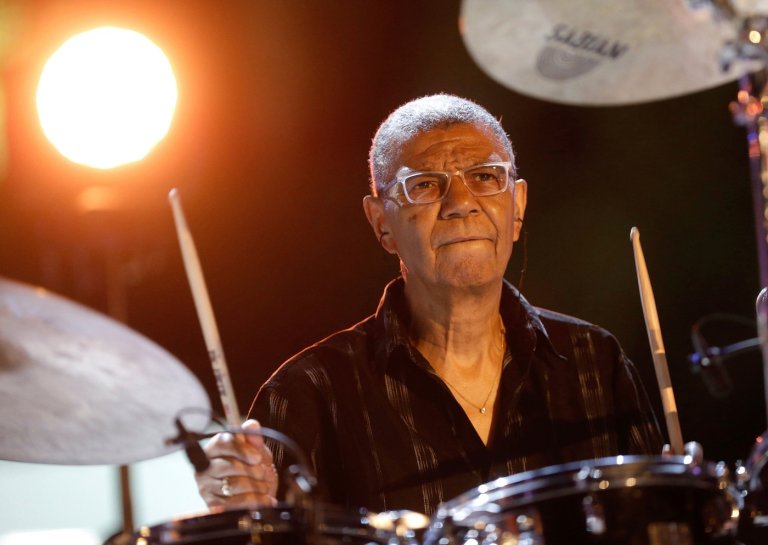As body count rises on scripted TV shows, actors face fear of dramatic death

TORONTO – John Cameron Mitchell remembers vividly exactly where he was when he found out he had died.
Or more specifically, when the character he portrayed on “Girls” — the acrid-tongued ebook editor David Pressler-Goings — met his untimely end.
“It was a table read and I hadn’t read that episode and it sort of suddenly came out — and I felt like I’d been punched in the gut,” said the “Hedwig and the Angry Inch” star in a recent telephone interview.
“It was just like, my actor side. I looked over at (writer-star) Lena (Dunham) and she goes: ‘I’m so sorry. I forgot to tell you.’”
In recent years, television body counts have blasted higher than home runs in the steroid era.
Spoilers, obviously, follow, but since “Game of Thrones” blew viewers’ minds by lopping off its lead character’s head in an infamous season 1 episode, television series have become increasingly brazen about shuffling beloved characters off this mortal cable.
When “The Good Wife” returns Sunday, it will do so — again, spoilers ahoy! — without Josh Charles’ cutthroat attorney Will Gardner, whose death in a courtroom shooting in season 5 could scarcely have been more jarring to devoted fans of the show. Other shows to suddenly kill off central characters in recent years include “House of Cards,” “Arrow,” “Breaking Bad,” “Downton Abbey” and “Scandal.” And of course “Game of Thrones” has buried more parts than a scrap yard.
Even “The Simpsons” has tried to buoy sagging enthusiasm for its seemingly endless run by vowing to kill off yet another character in its upcoming 26th (!) season, meaning shocking twist deaths have “graduated” from plot device to marketing tool.
“Some shows, maybe they do it as a bit of a buzz — it’s a great news piece to kill off a main character,” said Edmonton actor Eric Johnson in a recent interview.
“There was a fear before in your network television model to kill somebody that your audience identifies with,” he added. “I think there’s not a fear to do it anymore.”
As viewers have become seemingly more desensitized to losing pivotal characters, it’s now up to actors to mourn the fictional dearly departed.
Sure, in some situations — “Downton” and “Good Wife” come to mind — long-established series lynchpins were lost because the actors simply wanted to do something else.
But in cases such as Mitchell’s, a character being put out to pasture means an actor being put out of work. And for under-the-radar actors who work for years to land roles in major television series, the news can sting more than one might think.
In Johnson’s case, he’s starring in Cinemax’s Steven Soderbergh-steered period piece “The Knick,” which zeroes in on a turn-of-the-20th century New York City hospital with a soaring mortality rate.
After appearing in the series’ initial run of 10 episodes, Johnson says he was told he’d return for a second season — exciting news “at a time when 50 per cent of the people died from infectious diseases.”
He’s joking, but he acknowledges real actorly anxiety over a possible onscreen fatality.
“Oh, we all have concerns about that,” he said. “Every day you expect a script revision where somebody gets hit by a trolley or somebody gets syphilis and dies.
“You gotta be really nice to the writers. The writers will be making off like bandits on this show — all the free gifts. ‘Please don’t kill me off!’”
And indeed, onscreen thanatophobia is more an issue on some shows than others.
Take “How to Get Away With Murder,” premiering Sept. 25 on CTV. The show casts Viola Davis as a law professor who becomes tangled along with her students in a murder plot.
Beyond the fact that the word “murder” is in the title, the show carries the potential for a high fatality rate in part because it’s being produced by Shonda Rhimes. The powerhouse producer first flaunted a taste for fictional blood on “Grey’s Anatomy” — which has the distinction of killing off two separate Emmy-lauded leads — and cemented her ruthless reputation with the increasingly hazardous “Scandal.”
“Keeps you on your toes, right? Survival of the fittest?” laughed gregarious “How to Get Away With Murder” star Alfie Enoch in a summer interview, seated next to co-star Matt McGorry.
“You better bring your A game to work. Otherwise, you might be getting next week’s script but you won’t get one the week after.”
“Frankly,” added McGorry, known for starring on the jail dramedy “Orange is the New Black,” “coming from a show where I’m in prison, that was a worry for a long time and that kind of prepared me for this as well.”
McGorry and Enoch (the dimpled Brit best-known for portraying Dean Thomas in the “Harry Potter” film series) had just attested in detail to the good fortune required in landing a role on “Murder.”
Both actors felt serendipity-kissed simply by virtue of surviving the rigorous audition process, then making it to the pilot, then seeing the pilot picked up for series.
All the while, the actors tried to remind themselves that their hold on their roles was perilously tenuous.
“I was desperately keeping my expectations low,” Enoch said. “If you’re working on something you believe in, you get more and more invested in it. And the possibilities of not knowing if it’s picked up—”
“Or the recast,” interjected McGorry. “After we form this strong bond (together), one of us could be gone.”
“So I tried to adopt a very matter-of-fact attitude,” Enoch agreed. “‘If that happens, it’ll probably be me, guys. It was nice meeting you.’”
“I’m glad that we both have the ability to be level-headed about it,” concluded McGorry. “I think that’s a healthy way to be. It’s better to do that than the other.”
A sage attitude, to be sure.
And if increasingly actors turn each script page with baited-breath apprehension, most agree that a televised death is much easier to bear if it’s integral to the overall narrative — rather than some social media-baiting stunt.
“Now, it’s so much more about story — what works for the story, what’s right for the story?” explained Johnson. “So I always think if it’s right for the story, it’s right to do. If you’re doing it for other reasons then it’s kind of trite.”
In Mitchell’s case, his “Girls” character’s death initiated season 3’s “Dead Inside,” an episode co-penned by Judd Apatow and Dunham that sought to cheerfully plumb new depths of Hannah’s capacity for callous self-absorption.
It was a divisive, discussed episode. And so, Mitchell says, he was sacrificed for a worthy cause.
“I had to die so her character could not feel anything,” he said. “That, actually, was a wonderful episode. … So if I died for an awesome episode? So be it.”
___
With files from Canadian Press reporter Laura Kane in Toronto.
— Follow @CP_Patch on Twitter.
Join the Conversation!
Want to share your thoughts, add context, or connect with others in your community?
You must be logged in to post a comment.


















